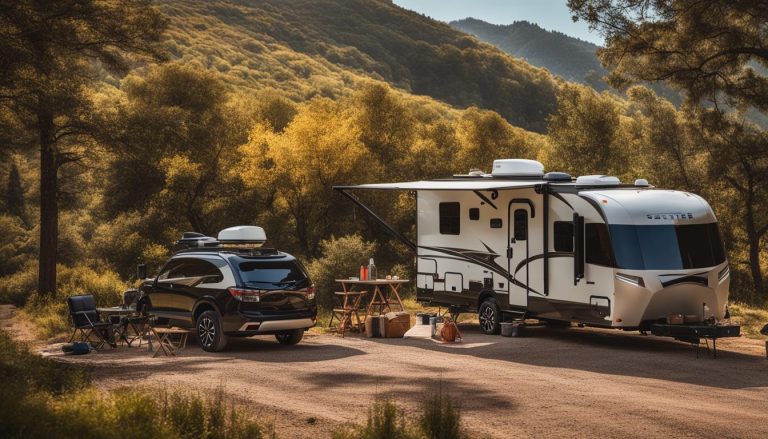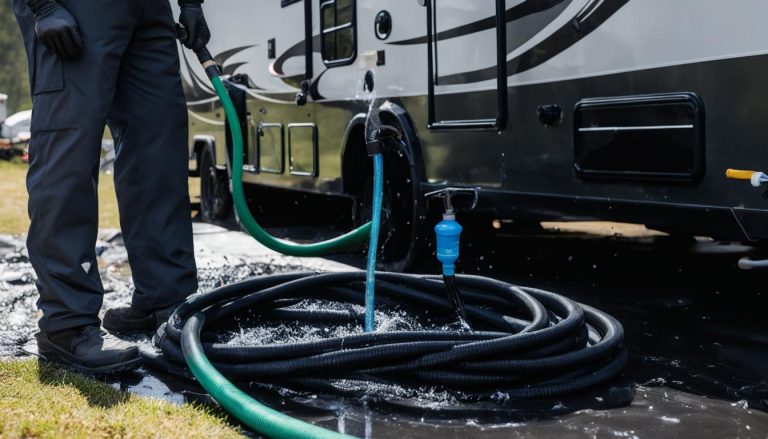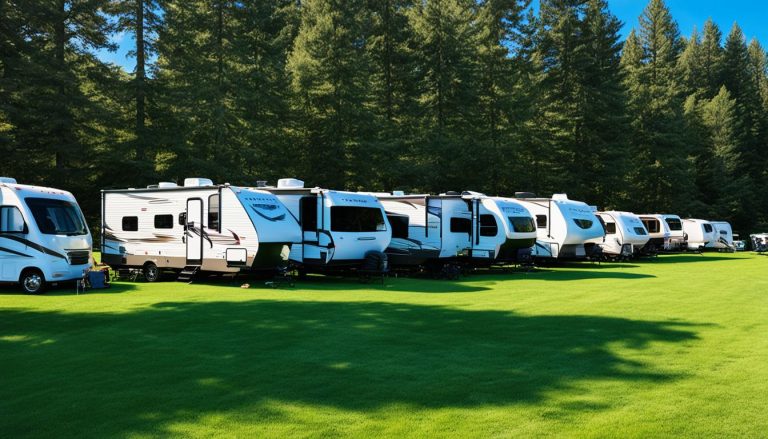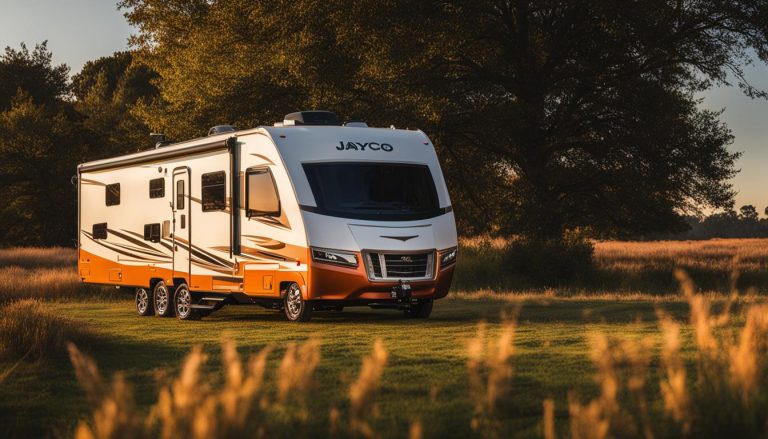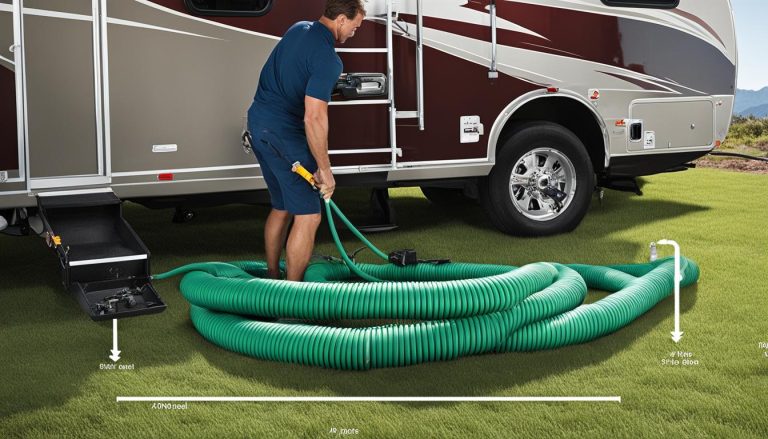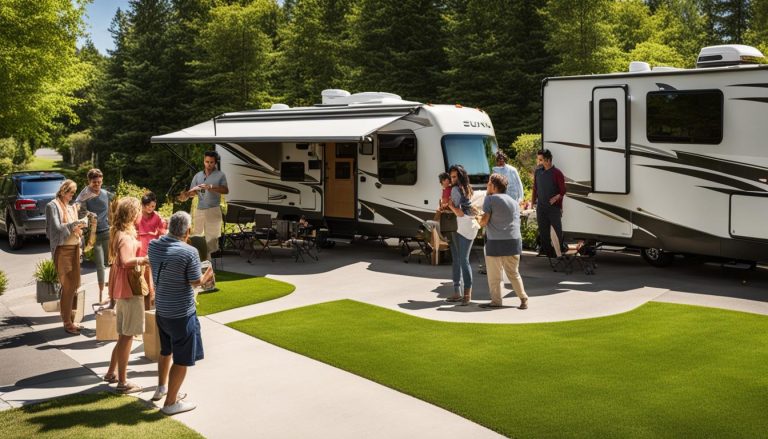Free RV Living: Where Can I Park My RV?
gorvlifestyle.com and its partners may earn a commission if you purchase a product through one of our links
Are you considering embracing the freedom and adventure of full-time RV living? One of the essential aspects to consider is finding suitable parking options for your RV. The good news is that there are numerous opportunities for free RV parking, allowing you to explore new destinations while keeping your expenses low. In this article, we will explore the various places where you can park your RV for free, giving you the flexibility and affordability you desire.
Key Takeaways:
- California offers a range of free RV camping options, including state and national parks, BLM-managed public lands, and backcountry areas.
- Walmart parking lots, big box stores, and some truck stops allow overnight RV parking at no cost.
- National parks and public lands offer opportunities for free RV camping, although permits and restrictions may apply.
- Dry camping and boondocking are popular ways to camp for free, with options available on BLM land, national forests, and remote locations.
- Thorough research and planning are crucial when seeking free overnight RV parking, ensuring compliance with regulations and having the necessary equipment.
Free RV Camping in California
California is a paradise for RV enthusiasts, offering a multitude of camping options for both paid and free stays. From breathtaking desert landscapes to majestic mountains and stunning coastal views, the state offers a diverse range of camping experiences. While there are numerous RV parks and campgrounds available for a fee, there are also plenty of opportunities for free RV camping in California.
One popular option for free RV camping is dispersed camping, also known as boondocking. This allows you to park your RV in remote locations on state, national forest, Bureau of Land Management (BLM), and some National Park Service managed public lands. Dispersed camping provides a unique opportunity to immerse yourself in nature and enjoy the serenity of the great outdoors. It’s important to note that free camping in California is often primitive, meaning there are no RV hookups available.
To help you plan your next adventure, here are some specific areas in California where you can find free RV camping:
- Mojave National Preserve: Located in the southeastern part of the state, the Mojave National Preserve offers stunning desert landscapes and ample opportunities for free RV camping.
- Anza-Borrego State Park: Situated in the Colorado Desert, Anza-Borrego State Park is the perfect destination for outdoor enthusiasts. Here, you can find free camping spots amidst the park’s vast expanses.
- Imperial Sand Dunes Recreation Area: If you’re looking for a unique RV camping experience, head to the Imperial Sand Dunes Recreation Area. This area offers free camping amidst towering sand dunes, providing a thrilling adventure for all.
When embarking on a free RV camping trip in California, it’s essential to follow any rules and regulations set by the managing agency. This includes respecting the environment, practicing Leave No Trace principles, and ensuring that you are in compliance with any stay limits and camping restrictions. By being a responsible camper, you can help preserve these beautiful natural spaces for future generations to enjoy.
Free Overnight RV Parking Options
When it comes to finding free overnight RV parking, you have a variety of options to choose from. These options offer convenience and affordability, allowing you to make the most of your RV lifestyle. Here are some popular choices:
1. Walmart Parking Lots
Walmart parking lots are a popular choice for overnight RV parking. Many Walmart locations allow RVers to park for up to 24 hours, providing a safe and convenient option for a night’s rest. Make sure to check with the specific Walmart store beforehand to ensure they permit overnight parking.
2. Big Box Stores
Aside from Walmart, other big box stores such as Cracker Barrel, Cabela’s, Denny’s, and IHOP also offer free parking options for RVs. These establishments understand the needs of RV travelers and provide designated parking areas. Just like with Walmart, always check with the store beforehand to confirm their overnight parking policy.
3. Truck Stops
Truck stops are another convenient option for overnight RV parking. Many truck stops have designated RV parking spots that offer security and access to amenities such as fuel, restrooms, and convenience stores. When choosing a truck stop, look for those with dedicated spaces for RVs.
These options provide a safe and cost-effective solution for overnight RV parking. They cater to the needs of RVers and offer the convenience of amenities nearby. However, it’s important to respect the policies of each establishment and follow any rules or guidelines they may have regarding parking duration and behavior.
Now that you know about these free overnight parking options, you can plan your RV trip more efficiently and make the most of your adventures on the road.
| Options | Benefits |
|---|---|
| Walmart Parking Lots | – Convenient and safe – Allows up to 24 hours of parking – Access to amenities |
| Big Box Stores | – Free parking options – Designated RV parking areas – Nearby amenities |
| Truck Stops | – Dedicated RV parking spots – Security and amenities available – Convenient for fuel and rest stops |
National Parks and Public Lands
While there are often fees associated with camping in national parks, there are still opportunities for free RV camping within these scenic locations. Service roads and backcountry areas within national parks provide options for finding free camping spots. Although these areas may lack amenities such as hookups, they offer a serene and picturesque environment for camping.
Backcountry Camping
Backcountry camping is a great option for free camping in national parks. This type of camping involves venturing into the wilderness and setting up camp in designated backcountry areas. It’s important to note that permits may be required for backcountry camping in some parks to help manage the environmental impact and ensure a safe experience.
Backcountry camping is particularly suitable for smaller RVs or travel trailers due to the rugged nature of these areas. It allows you to immerse yourself in the beauty of the national park and enjoy a more secluded camping experience.
Bureau of Land Management (BLM) Land
Another option for free RV camping is Bureau of Land Management (BLM) land. BLM manages vast areas of public land in the western states, providing recreational opportunities, including camping. RVers can stay for free on BLM land for up to 14 days, depending on the specific regulations of each area.
BLM land offers a variety of camping experiences, from developed campgrounds to dispersed camping in more remote areas. The dispersed camping sites on BLM land often provide a sense of solitude and allow you to connect with nature.
Planning Your Visit
When planning your visit to national parks and BLM land for free RV camping, it’s essential to research the rules and regulations specific to each area. Some parks may require permits or have limited availability for backcountry camping, while others may have specific restrictions on RV length or camping duration.
It’s important to respect the natural surroundings and adhere to any guidelines in place to preserve the area’s beauty for future generations of campers. By following these regulations, you can enjoy the wonders of national parks and public lands while partaking in the freedom of free RV camping.
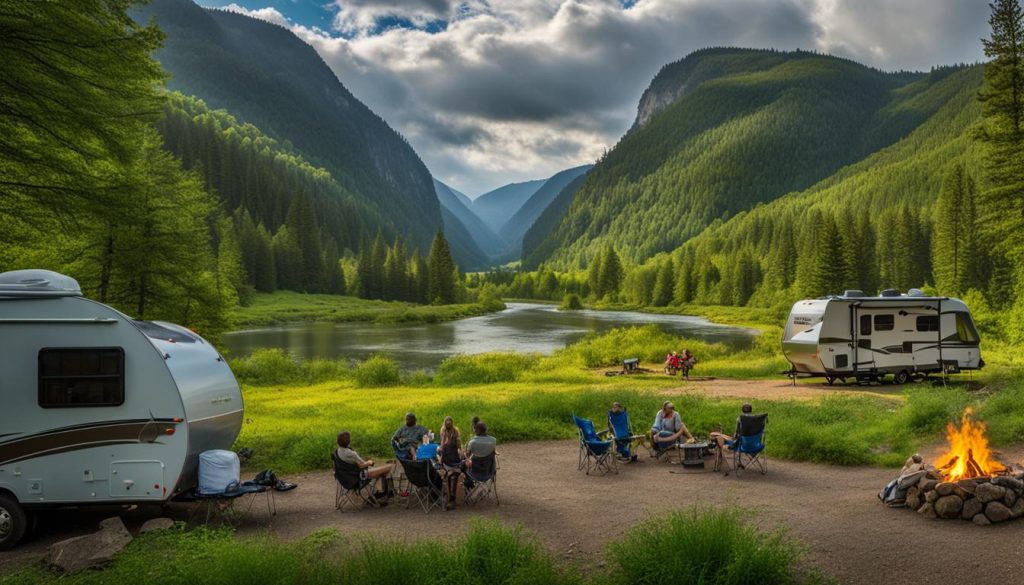
Dry Camping and Boondocking
Dry camping and boondocking are popular ways to camp for free. Dry camping typically refers to camping at a campground without hookups, even if they are available. This is a cost-saving option for those who want to rely on their onboard resources.
Boondocking, on the other hand, involves parking your RV for free in areas where there are no sewer, water, or electric hookups. This can include BLM land, national forests, and other remote locations.
Boondocking allows for a more off-the-grid experience but requires extra equipment like extra batteries, a generator, or solar power to sustain your RV’s power needs. It’s important to conserve water and manage your holding tanks when boondocking or dry camping.
Benefits of Dry Camping and Boondocking
- Cost savings: Dry camping and boondocking offer free camping options, reducing the expenses associated with paid campgrounds.
- Closer to nature: By parking in remote locations, you can fully immerse yourself in the beauty and tranquility of the great outdoors.
- More privacy: With fewer neighbors and crowds, dry camping and boondocking provide a more secluded camping experience.
- Freedom and flexibility: You’re not tied to designated campsites, allowing you to explore new areas and change your plans easily.
“Dry camping and boondocking offer RVers the opportunity to experience the freedom of the open road while enjoying free camping options in breathtaking locations.”
While dry camping and boondocking provide incredible benefits, it’s essential to practice responsible camping. Be mindful of the environment and follow Leave No Trace principles to ensure the preservation of natural spaces for future generations.
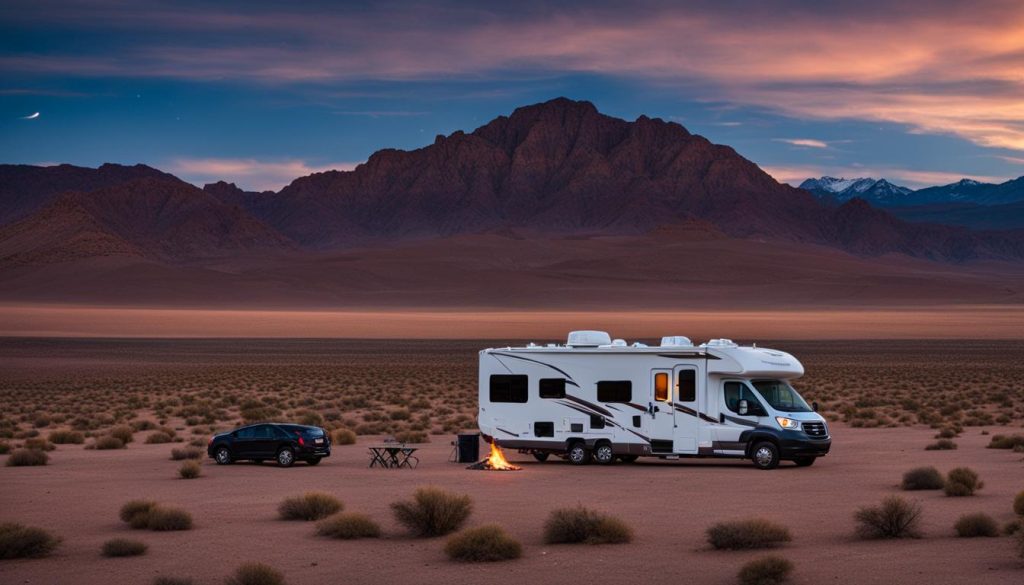
| Dry Camping | Boondocking |
|---|---|
| Stay at campgrounds without hookups | Park in remote areas with no hookups |
| Relies on onboard RV resources | Requires additional power equipment |
| Cost-saving option | Free camping option |
| May have limited amenities | No amenities available |
Tips for Finding Free Overnight RV Parking
When planning for free camping and searching for finding free overnight RV parking, thorough research and preparation are essential. Start by researching truck stops, Walmart locations, and other big box stores that allow overnight parking. These establishments often provide safe and convenient options for RVers looking to park for the night at no cost.
Another option to consider is national parks, Bureau of Land Management (BLM) land, and backcountry areas. These locations can offer breathtaking natural landscapes and free camping opportunities. However, be sure to check for any permits or restrictions before setting up camp.
Dry camping and boondocking are also popular choices for free camping. With dry camping, you can stay at a campground without hookups, relying on your onboard resources. Boondocking, on the other hand, involves parking your RV in remote areas where there are no hookups available. This allows for a more off-the-grid experience, but you’ll need to ensure you have the necessary equipment and resources to sustain your RV’s power needs.
Always remember to show respect for the places you park by following any rules or guidelines set by the establishment or organization. Proper planning and research will not only help you find free overnight RV parking but also enable you to enjoy the freedom of free RV living while saving money along the way.
FAQ
Where can I park my RV to live for free?
There are several options for free RV parking, including Walmart parking lots, truck stops, big box stores, national parks, public lands, and backcountry areas. It’s important to research and plan ahead to ensure you have permission to park and follow any rules or regulations.
Are there free RV camping options in California?
Yes, California offers free RV camping options on state, national forest, BLM, and some National Park Service managed public lands. Areas such as the Mojave National Preserve, Anza Borrego State Park, and the Imperial Sand Dunes Recreation Area allow free camping, although amenities like RV hookups may not be available.
Where can I find free overnight RV parking?
Walmart parking lots, truck stops, and big box stores like Cracker Barrel, Cabela’s, Denny’s, and IHOP often allow RVers to park overnight for free. It’s best to check with the establishment beforehand and adhere to any rules or guidelines they may have.
Can I camp for free in national parks and public lands?
While most national parks may charge a fee for camping, there are service roads and backcountry areas where you can find free camping spots. BLM land, found in many western states, allows free RV camping for up to 14 days. Backcountry camping is another option, but permits may be required in some areas.
What is dry camping and boondocking?
Dry camping refers to camping without hookups, even if they are available at a campground. Boondocking involves parking your RV for free in areas where there are no sewer, water, or electric hookups. This can include BLM land, national forests, and other remote locations.
Any tips for finding free overnight RV parking?
It’s essential to do thorough research and planning. Check for truck stops, Walmart locations, and other big box stores that allow overnight parking. Look into national parks, BLM land, and backcountry areas, but be aware of any permits or restrictions. If dry camping or boondocking, make sure you have the necessary equipment and resources. Always be respectful of the places you park and follow any rules or guidelines set by the establishment or organization.

